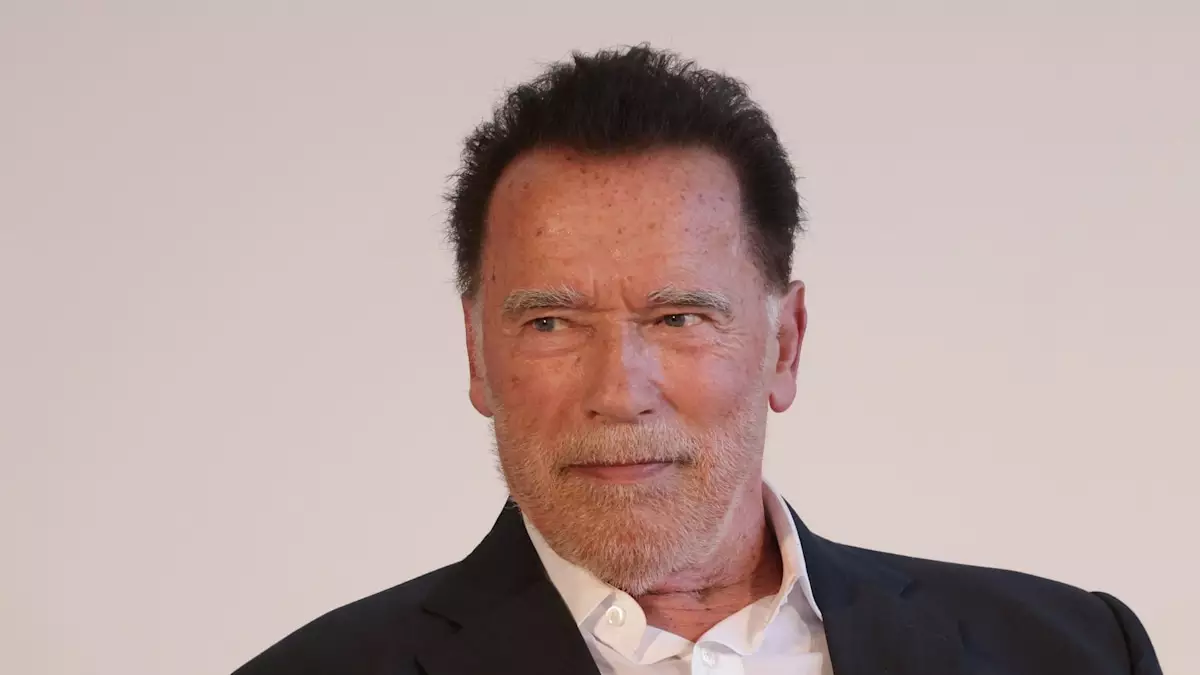In a landscape increasingly dominated by polarization, former California Governor Arnold Schwarzenegger’s recent endorsement of Vice President Kamala Harris stands out as both a surprising and significant moment in contemporary American politics. This unexpected turn from a prominent Republican figure sends powerful ripples through the political discourse, forcing citizens to rethink party loyalties and the essence of genuine democratic participation.
Schwarzenegger’s public declaration on the social media platform X reveals a profound disenchantment with the current political environment. By stating, “I don’t really do endorsements,” he underscores a long-standing skepticism about political machinations that has grown deeper over the years. His frustration is not merely with the two-party system but extends to a broader existential crisis regarding political integrity and the survival of democratic values.
This situation resonates with many voters who find themselves disillusioned by traditional party lines. Schwarzenegger’s stark honesty illustrates a growing sentiment that transcends party affiliation; he posits that the prevailing political culture prioritizes personal gain and sensationalism over authentic governance and compromise. He mentions that “rejecting the results of an election is as un-American as it gets,” identifying a seemingly contagious disease in American democracy—the inability to accept electoral outcomes and the consequent strain it places on societal unity.
In a pivotal moment, Schwarzenegger emphasized his identity as an American citizen before being a Republican. This assertion encapsulates a vital message: the need to prioritize democratic principles over partisan allegiances. By declaring his support for Harris and Tim Walz, Schwarzenegger essentially urges voters to consider the implications of their choices on the nation as a whole.
His critique of former President Donald Trump centers on the device of division that has characterized his leadership. Schwarzenegger’s comparison of the January 6 insurrection to historical moments of shame, such as Kristallnacht, serves not only as a condemnation of extremity and violence in politics but also as a call to conscious citizenship. He advocates for a path forward that rejects divisive politics, urging unity and a collective commitment to rebuilding the democratic fabric of the nation.
The ex-Governor’s sentiment for citizens to “vote and turn the page” addresses an essential aspect of participatory democracy. He implores Americans to engage with the electoral process, even if they do not entirely agree with his perspective. This element of his message is a vital reminder that democracy is participatory and requires the active involvement of its citizens.
By speaking out—even at the risk of alienating segments of his supporters—Schwarzenegger exemplifies how influential figures can wield their platform to encourage constructive dialogue instead of acerbic partisan shouting. His call to action serves as a poignant reminder that the health of American democracy relies on citizen engagement and open discourse, not just among those who share similar views but also across ideological divides.
As the political climate heats up ahead of the November elections, Schwarzenegger is not alone in his endorsement of Harris. The landscape is filled with high-profile endorsements, including those from celebrities like Taylor Swift and Beyoncé. These endorsements can mobilize voters and reshape the political narrative, especially among younger demographics who are increasingly apathetic about traditional political figures.
However, this reality also raises questions about the role of celebrity in politics. While public figures can amplify crucial messages, it’s essential to ponder whether their involvement blurs the lines between informed decision-making and a celebrity-driven culture. Schwarzenegger’s thoughts remind audiences that the foundational issues at stake should transcend the charisma of those backing a candidate.
Arnold Schwarzenegger’s shift in allegiance brings to the forefront the urgent need for a more profound dedication to democratic principles and civic responsibility. In an era where political engagement often feels profoundly fractured, his endorsement calls for collective reflection on what it means to be part of a democracy.
The prevailing message is clear: while the current political landscape is riddled with challenges, everyone has a role to play in shaping the future. As we approach the elections, Schwarzenegger’s stance serves as a lighthouse, urging every citizen to look beyond party lines and embrace the essential American protocol of electoral participation—voting for the values that unite, not divide.

